Past Recipients
2013
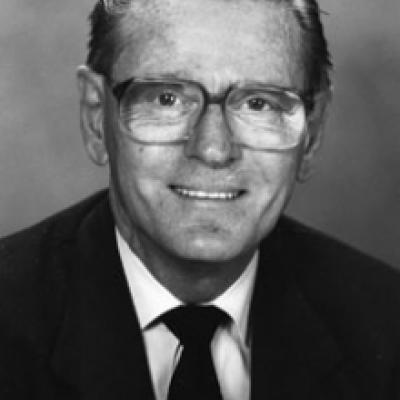
Economist, higher education leader and Rhodes Scholar Ian Macdonald has had a distinguished career in both academia and government. He served as a professor of economics at U of T and dean of men at University College, before entering the public service in the Government of Ontario as chief economist and assuming a number of increasingly important, ministerial positions in economics and intergovernmental affairs.
In 1974, he was named president of York University, a position he held with distinction for more than 10 years. Macdonald is now President Emeritus of York University, as well as a professor of public policy and economics, and director of the Master of Public Administration program.
In the community, Macdonald has served several Canadian and international companies and institutions, including: the AGF Companies; McGraw-Hill Ryerson Ltd.; the Canadian Rhodes Scholars Foundation; the Council of the Royal Commonwealth Society; the International Association of Universities; the Inter-American Organization for Higher Education; the Canadian Hockey Association; and the Empire Club of Canada, among many others.
During his career, Macdonald has received many honours, including the Governor General's Medal; the Centennial Medal; the Queen's Silver Jubilee Medal; Officer of the Order of Canada; Citation of Merit, the Court of Canadian Citizenship; the Medal of the Dominican Republic; the Canada 125 Medal; the Award of Merit of the Canadian Bureau for International Education; Honorary Life Member, the Canadian Olympic Association; the Queen’s Golden Jubilee Medal; and the Vanier Medal, plus many other accolades.
In 2005, he was honoured by the Government of Ontario with the creation of the H. Ian Macdonald Visiting Economist position in the Ministry of Finance and by York University with the George Tatham Award in recognition of a lifetime of teaching excellence.
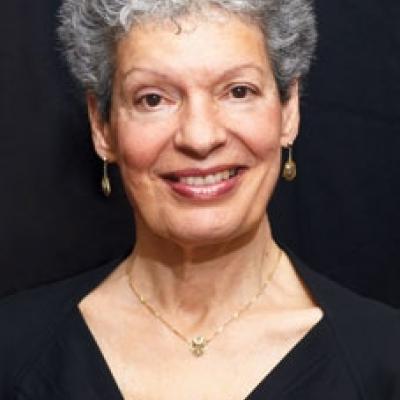
Author, curator and art historian Joan Murray has played a significant role in developing the study of Canadian art. Starting in 1968, she worked at the Art Gallery of Ontario, first as head of education, then as the gallery’s first curator of Canadian art and as acting chief curator. From 1974 to 1999, Murray was at the helm of the Robert McLaughlin Gallery in Oshawa where she organized more than 100 exhibitions and assisted in fundraising for the gallery.
Upon her retirement, she served as adjunct curator to the Varley Art Gallery in Unionville, as well as assisting the National Gallery of Canada and the Art Gallery of Ontario as one of the curators for a major retrospective of Tom Thomson. Murray also developed several exhibitions for leading Ontario galleries, including a major retrospective of Florence Carlyle for Museum London.
A leading Tom Thomson scholar, Murray was responsible for bringing the paintings of the visionary Canadian painter to world attention through a series of exhibitions and books, including a biography. She has authored more than 20 books on the history of Canadian art, notably Canadian Art in the Twentieth Century, Northern Lights: Masterpieces of Tom Thomson and the Group of Seven and McMichael Canadian Art Collection: One Hundred Masterworks. She has also published more than 200 articles on subjects ranging from folk art to contemporary artists in the Globe and Mail, Maclean’s, and other publications. She is a well-known lecturer, both in Canada and abroad.
Murray was elected to the Royal Canadian Academy in 1992 and, in 1993, was honoured with the Senior Award from the Association of Cultural Executives for her outstanding contribution and dedication to Canadian cultural life. She received the Order of Ontario in 2003.
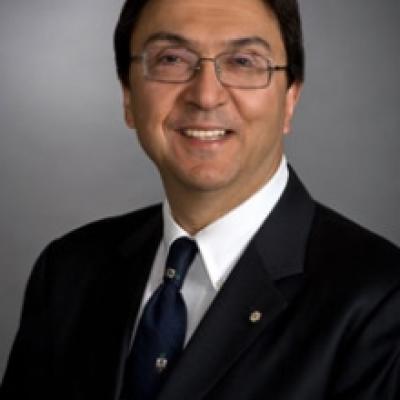
Medical researcher, higher education leader and Rhodes Scholar David Naylor served as president of the University of Toronto from 2005 to 2013. After two years at University College, he entered medical school and received his MD from U of T’s Faculty of Medicine in 1978. He earned his PhD in the Faculty of Social and Administrative Studies at Oxford University in 1983 and became a Fellow of the Royal College of Physicians and Surgeons in 1986.
Naylor joined the Medical Research Council at Toronto General Hospital in 1987, and the Department of Medicine at U of T in 1988, becoming dean of Medicine and vice-provost for Relations with Health-Care Institutions at U of T from 1999 to 2005.
He is the co-author of approximately 300 scholarly publications, spanning social history, public policy, health economics and epidemiology and biostatistics, as well as clinical and health services research in most fields of medicine. He has also been active as a policy advisor to governments in Canada and abroad for 25 years. Among other contributions, he served as chair of the National Advisory Committee on SARS and Public Health in 2003. More recently, he was a member of the Global Commission on the Education of Health Professionals for the 21st Century, and he served on the federal Review of R&D Spending in Canada.
Naylor is a Fellow of the Royal Society of Canada and the Canadian Academy of Health Sciences, a Foreign Associate Fellow of the U.S. Institute of Medicine and an Officer of the Order of Canada. He is also the recipient of various national and international awards for excellence in research and leadership in clinical medicine, public policy, public health and health care.
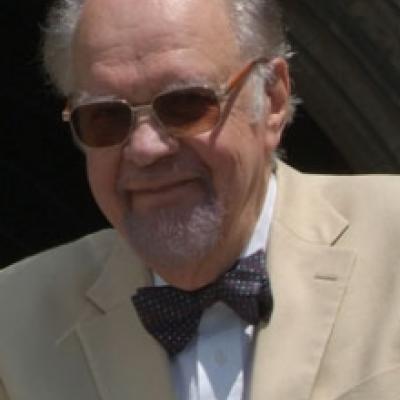
Experimental psychologist and cognitive neuroscientist Endel Tulving has fundamentally shaped our understanding of human memory. He introduced the concept of episodic memory, which has provided insight into neurological disorders such as strokes and Alzheimer’s disease, and his theories have provided the foundation for the field of memory research.
Tulving left his native Estonia during WWII and came to Canada, eventually enrolling in psychology at U of T, where he spent his career. Now a Professor Emeritus at U of T, he has influenced generations of psychologists and neuroscientists throughout his prolific career. His publications are highly cited, and he has been elected to seven distinguished science societies: the Royal Society of Canada; the Royal Swedish Academy of Sciences; the Royal Society of London; the American Academy of Arts and Sciences; the National Academy of Sciences, U.S.; Academia Europaea; and the Estonian Academy of Sciences.
He has received numerous honours, including the prestigious Gairdner Award, Canada’s leading prize in biology; the Distinguished Scientific Contribution Award of the American Psychological Association; and the Gold Medal Award for Life Achievement in Psychological Science from the American Psychological Foundation, among other accolades. In 2006, he was named an Officer of the Order of Canada and in 2007, he was inducted into the Canadian Medical Hall of Fame.
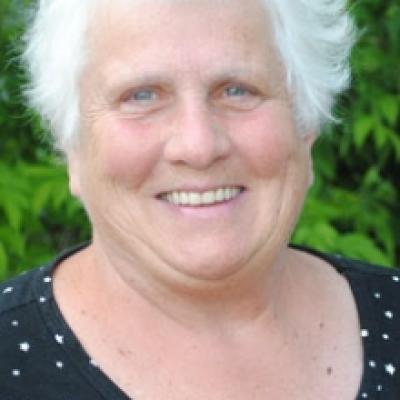
An advocate for rural and Aboriginal communities, Florence Woolner has dedicated her life to improving the quality of life and opportunities for residents of remote communities. Upon graduating from UC, she settled in northwestern Ontario, where she continues to play an integral role in community and economic development through her signature approach involving training, mentoring and capacity-building.
Her volunteerism has spanned four decades and includes invaluable contributions to anti-racism, organizational and international development, health, education, arts and governance. Among her many accomplishments, she spearheaded the creation of a network of radio stations serving isolated communities, linking them to mainstream Canada and each other; helped establish a regional Children’s Aid Society office; and provided invaluable mentoring and support to Aboriginal leaders and hundreds of community members. Her impact has been local, regional, national and individual, and she has radically improved lives in Canada’s most distant and marginalized communities.
Woolner is also a founding member of the Sioux Lookout Creative Arts Circle, a not-for-profit group that promotes artists in northwestern Ontario and all forms of creative expression by providing opportunities for performance, exhibition, instruction and promotion related to the arts.
2012

Eminent historian Irving Abella is an expert on the Canadian labour movement and the history of Jews in Canada. The former chair of Vision TV and president of the Canadian Jewish Congress and the Canadian Historical Association, he is currently the Shiff Professor of Canadian Jewish History at York University. Abella has been recognized with the Guggenheim Memorial Fellowship, the National Jewish Book Award, and the Queen’s Jubilee Medal, among many other honours. He is married to Supreme Court Justice Rosalie Silberman Abella. The couple met at UC and they have two sons, both lawyers.
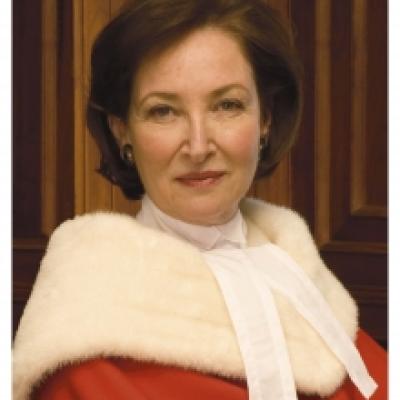
Supreme Court Justice Rosalie Silberman Abella studied arts and law at U of T. She practiced civil and family law until the age of 29 when she was appointed to the Ontario Court of Justice, becoming both the youngest and first pregnant judge in Canadian history. She was elevated to the Ontario Court of Appeal and in 2004, she became the first Jewish woman to sit on the Supreme Court of Canada. One of the nation’s foremost experts on human rights law, Abella sat on the Ontario Human Rights Commission for five years and was awarded the International Justice Prize from the Peter Gruber Foundation, among many other honours. She currently holds more than 30 honorary doctorates. She is married to historian Irving Abella (BA 1963 UC), whom she met while at U of T.
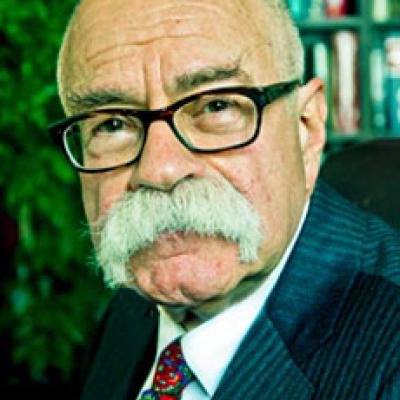
Barrister and solicitor Philip Anisman, a sole practitioner and authority on Canadian securities law, was a professor at York, Western and Monash universities and director of corporate research at Consumer and Corporate Affairs Canada. He is the author of books, articles and reports to governments on corporate, securities, constitutional and administrative law, and has advised securities regulatory organizations in Canada and internationally. He has appeared before all levels of courts in Canada. Having taken undergraduate courses with the outstanding teacher, Professor F.E.L. Priestley, he led efforts that established the annual F.E.L. Priestley Memorial Lectures in the History of Ideas at UC.

Scholar Harry Arthurs is an expert in legal history and theory, labour law, globalization and constitutionalism. A former dean of Osgoode Hall and president of York University, Arthurs has served as an arbitrator and has been called upon by governments to advise on a wide range of legal issues. He is the recipient of the prestigious Killam Prize for lifetime contribution to the social sciences, and the Bora Laskin Prize for his contributions to labour law.
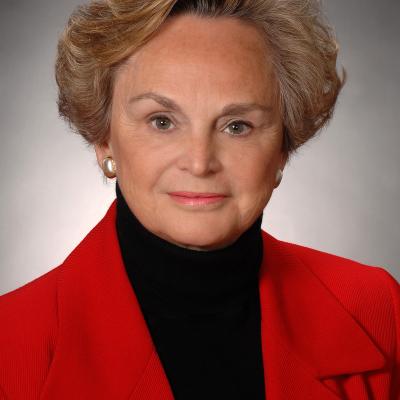
Corporate leader Diane Bean is the executive vice-president of Manulife Financial. She has also held leadership positions with several educational, health-care and arts organizations. As a member of the Toronto Regional Immigration Employment Council, Bean spearheaded Canada’s first internship program for internationally qualified professionals. For four consecutive years, she was named by the Women's Executive Network as one of Canada’s Most Powerful Women: Top 100.
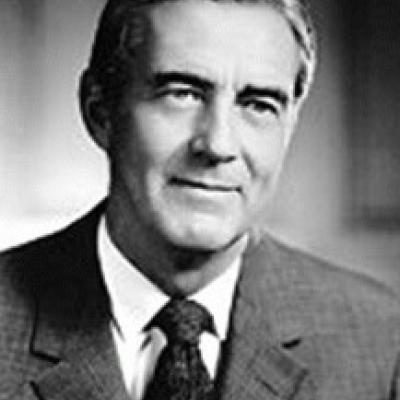
Innovative heart surgeon William Gordon Bigelow was instrumental in the development of open-heart surgery and the cardiac pacemaker. As a captain in the Royal Canadian Army Medical Corps during the Second World War, he performed transfusions and surgeries in the field. In the laboratory, he was a pioneer in the use of hypothermia to make open-heart surgery safer. Bigelow also discovered that stimulating a heart stopped with an electrical probe would resume its beating, paving the way for the pacemaker. He was a recipient of the Gairdner Award for Medical Science and a member of the Canadian Medical Hall of Fame.
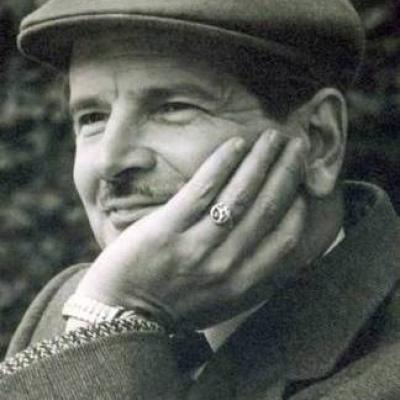
Scholar and higher education leader Claude Bissell was the eighth president of the University of Toronto and a former dean of men at UC. The academic environment created under his leadership attracted luminary thinkers such as Northrop Frye, Marshall McLuhan and John Polanyi, among others. With deftness and passion, he led the University through important reforms and a period of unprecedented growth. His contributions to U of T are honoured in the namesake Claude T. Bissell Building at Robarts Library and Bissell House at University College.